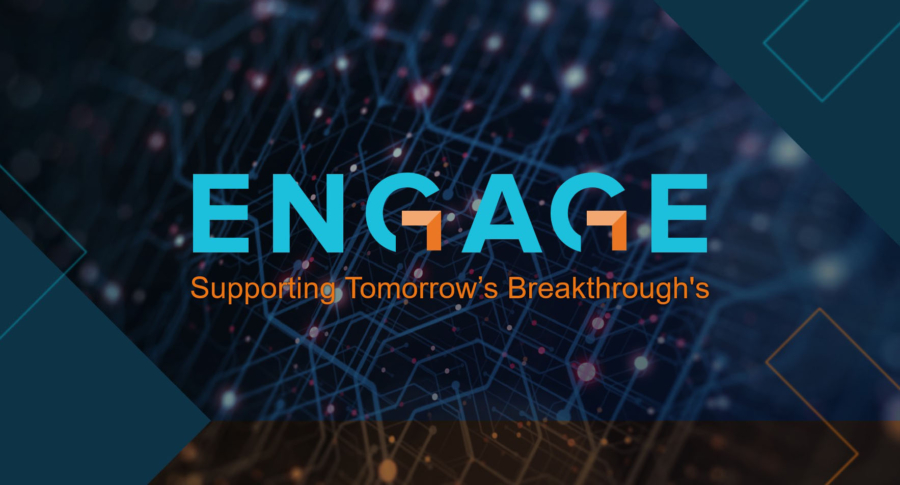
Three Takeaways from the Society of Clinical Data Management (SCDM) Annual Meeting 2022
In person for the first time in three years, the SCDM Annual meeting was both a celebration and a rally for embracing the digital future of clinical data management and drug development. With over 800 attendees from around the globe, demand for the meeting exceeded expectations of the program committee demonstrating the desire for data management professionals to come together to network with colleagues, share challenges and hear how others are approaching the incredible volume of data that is now available for clinical development. Covid-19 vaccine developers shared lessons learned, including how to build on a hyper-speed development paradigm with collaboration from key stakeholders. The eClinical Solutions’ team brought a cross functional team of leaders to SCDM this year as we were eager to connect with clients and colleagues, share ideas, best practices, and help shape the future of our industry. The three major takeaways we saw from the more than 15 sessions we collectively attended are distilled below:
1) Data, Data Everywhere
There has never been more data to harness in clinical development and the pace of change in the types of data that can be collected is outpaced only by the volume of data that is now part of trials. This reality was expressed throughout the conference-from keynote and Verily leader Amy Abernathy who discussed the longitudinal nature of all health data and the opportunity technology combined with data sciences presents to unlock new medical breakthroughs faster; to the discussion of how RWE (Real Word Evidence) does and will grow in its role to enhance submissions; to decentralized trial models and, collection devices and apps. Also, Biomarkers and basket trials are collecting more data outside EDC, providing ways to rapidly interact with data and signals as more companies look to develop targets that rely on data and disease progression to drive disease targets.
A consistent theme throughout all the sessions was the need for change. Traditional methods and ways of reviewing data including focusing primarily on EDC systems that rely on manual processes to export data across systems and programs comparing data via SAS and looking primarily at Metadata for external data feeds will no longer work in today’s data rich environment. Speakers and participants also discussed at length how the evolution of the data management role has evolved to require more technical and systems competence, along with statistical and probability fluency, regulatory experience, and operational know-how. Participants also considered the role of data managers in managing non-traditional collaborations, as well as what the model will look like in the future.
2) The Modern Toolkit for Data Management
With EDC a given in the clinical trial landscape and the old question of “Are eDiaries better than paper” at last put to rest, a new set of tools for modern drug development has arisen. The power of these tools is wide-ranging and the industry is just beginning to scratch the surface with the capabilities these tools present to accelerate research and increase the impact of the role of data management. The new essential toolkit for Data Managers in 2022 includes:
- Workbenches – With the rate of external data systems and volume far outpacing the data in EDC, the data management workbench has become more common and essential. One place to review data from all sources including eCOA, DCTs (decentralized clinical trials), specialty labs etc., send queries across systems and visualize data is no longer a “nice to have” capability for trials, it’s
- RBQM (Risk-Based Quality Management) Rising – Reviewing every data point is no longer an option and Data Management is taking a more centralized role in driving RBMQ strategy. The technology implementation of RBQM is more straightforward than the process changes it entails in terms of which risks to address, the cross functional role of teams, ownership of both identifying and mitigating risks, and the right resourcing model needed to optimize risk-based approaches. Many companies now use RBQM software regularly. So, the question of how to integrate the results of algorithms that identify risk in data and the technical fluency needed to separate risk from noise is a key part of the evolution of data management to a role with greater knowledge of data sciences.
- AI Experimentation – While a single “killer app” for AI applied to data management remains elusive, there is much experimentation and opportunity to leverage machine learning to aid and streamline all parts of the clinical data lifecycle. There are new applications and work across the industry using AI/ML and advanced statistics to add intelligence and automation to data ingestion and pipelines across source systems, data standardization and mapping, data review both for consistency and clinical accuracy along with opportunities to optimize protocols, site selection and supply, and operations. Companies shared their lessons learned from a wide variety of stages of AI strategy and capability rollouts.
3) More Change Ahead
As the largest conference in the world devoted to the role of data management in clinical development, there was much conversation this year about how the role is changing rapidly, and the skills needed to thrive and lead as a data manager in today’s environment. The SCDM position papers provide excellent examples of the technology and industry trends shaping the role of data management and its transition towards data sciences. Several sessions explored the skills needed to succeed in today’s ever more complex and data rich environment. The sessions also addressed specific opportunities to upskill both in terms of breadth of knowledge in technical disciplines such as programming and advanced statistics along with greater depth of knowledge in clinical data standards, RWE sources, clinical operations, regulatory compliance and specific therapeutic area data requirements. At eClinical Solutions, we debate internally how the data management role will evolve and see both the data scientist path and that of the data steward as realistic possibilities.
Regardless of your viewpoint, we all agree the importance and scope of the data management role continues to grow. Harnessing our collective body of health-related data to bring about a next generation of personalized medicines is the outcome we are all looking to achieve. While we do not yet know the direct path that will lead us there, or how quickly we can attain it, the data management community is experimenting with different promising approaches. After all, there are numerous ways to get to the same destination. At eClinical Solutions, we regularly share our stories, successes, experiments, and lessons learned from innovating digital trial data management.
To get the latest trends and advances in the digital trial space direct to your inbox, subscribe to our blog.
Author

Sheila has more than 20 years of industry experience including marketing, product management and strategy roles in life sciences technology companies. She spent 15 years at PHT Corporation (now ERT) in a variety of marketing and executive leadership roles helping to drive the company’s growth and the industry adoption of electronic clinical outcome assessments (eCOA). At eClinical Solutions, Sheila managed all aspects of marketing including branding, communications, lead generation and product marketing. She enjoys finding creative ways to tell customer stories, and building products and services that help clinicians, data scientists and technologists do the challenging and important work of bringing life-saving new therapies to market.
By submitting, you agree to the processing of your personal data by eClinical Solutions as described in our Privacy Policy.






